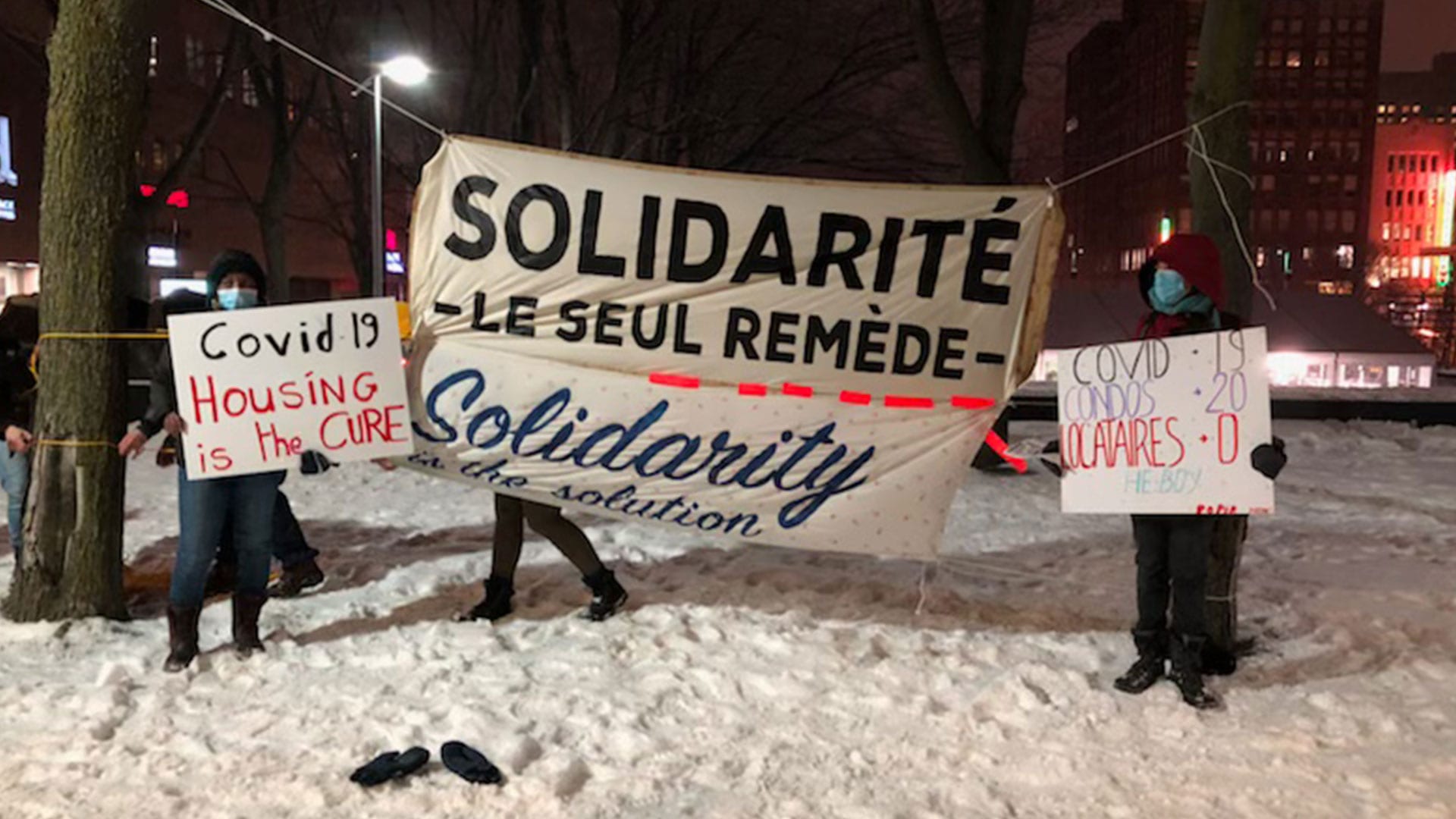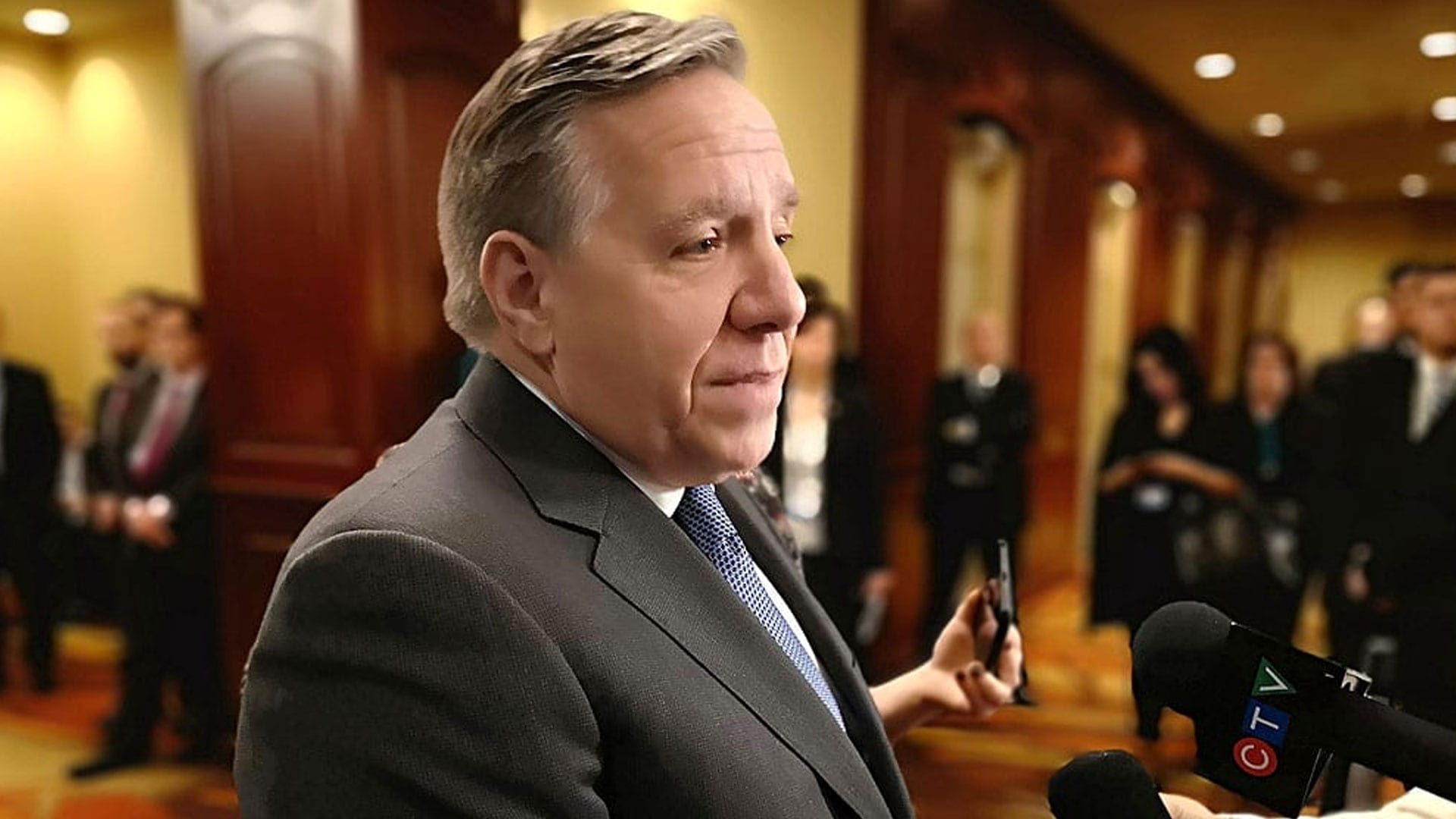Montreal Public Health Authorities confirmed Wednesday that the city’s homeless population – now in the midst of an active COVID-19 outbreak – will be receiving vaccinations as of this week to remedy the situation frontline workers say is “ravaging” the urban Indigenous community.
Dr. Mylene Drouin, an advisor for the city says up until now, the city has only received “small” quantities of the vaccine.
Health care workers still remain in the top tier priority-wise, followed by long-term care residents, but with a surplus of doses available for the week, Drouin says Montreal will make available “a small lot to control the critical situation in the area of homelessness,” said Drouin.
“We have to understand – these are outbreaks that are hard to control considering peoples’ lifestyle context,” Drouin explained during a press conference. “They’re very mobile, so they sometimes go from one center to another.”
Drouin says the few day centers, or warming centers, currently open are driving COVID-19 transmission in the homeless community.

But Heather Johnston, executive director of Projets Autochtones du Quebec, an overnight shelter in Montreal, says these day time resources are needed as much as overnight ones.
“Places where homeless people might normally pass their day – at the library, in a park where it’s very cold, a lot of people like to go to the shopping centers, go to the Tim Hortons – those are all closed,” Johnston said in an interview with APTN News.
With few places to go during the day, people are often left to gather outside.
According to public health data, least 114 homeless Montrealers have tested positive for the virus since December, as well as 58 intervention workers.
Johnston says there are “dozens” of confirmed cases in the urban Indigenous population – many of whom struggle to find appropriate housing or culturally-relevant services while ordered to self-isolate.
One unspoken issue, she explains, is how frontline workers are burning out trying to bridge service gaps and answer needs as the virus continues to spread.
“I’ve been on the phone with doctors in public health in tears because we can’t find a place for someone who’s homeless and needs to isolate – and there’s no place at the Royal Vic (Royal Victoria Hospital), and there’s no place in the hospital.
I’ve heard them on the phone in tears because they can’t find a bed, and they’re desperate,” Johnston said.
“There’s a system that doesn’t always work, but the humans behind that system – I have not met one person in the health network or public health who has appeared to be indifferent or uncaring.”
Read More:
APTN News coverage of COVID-19
However, Premier Francois Legault’s comments on the homeless suggest to many the government is out-of-touch with the severity of the situation on the ground.
At last count, at least 3,000 Montrealers lived on the street year-round.
But Quebec announced it would be enforcing an 8 p.m. curfew in an experimental “shock treatment” to curb spread of the virus. Legault announced he expected the homeless to comply.
“Obviously what we’d like, considering the cold, is that they stay indoors,” Legault told reporters last week. “There’s more than enough space available.”
Following his comments, community-based organizations all over the province went into high-alert.
Overnight shelters are either operating at a reduced capacity, or do not make accommodations for clients with dependency issues – a situation that forces large segments of the population to violate new curfew rules.

Even though Quebec promised leniency from police – a homeless man in Montreal was slapped with a $1,550 ticket after reportedly refusing to be re-directed to a shelter.
At the time, a police spokesperson said the man “didn’t want to help himself,” prompting community groups to gather publicly and propose alternatives.
“When you actually present more policing, what ends up happening is people don’t want to get tested,” explained Jessica Quijano, an intervention worker with the Iskweu Project, and a representative of the Defund the Police Coalition.
“I had some people tell me ‘I’m not going to get tested’ because now [police] are going to go after me to go quarantine, and I don’t have anywhere to live,” she said during a demonstration on Monday.
Drouin insists that people with symptoms should be getting tested immediately to help monitor how the virus is spreading.
However, the housing situation once they’re awaiting results – or test positive – is a hit-or-miss.
On Wednesday, Montreal said the number of tests administered will increase. It will also be increasing isolation space at the former Royal Victoria Hospital site, which has operated as an emergency shelter for two winters running.
But where the urban Indigenous population is concerned, Nakuset, executive director of the Native Women’s Shelter of Montreal, has her own ideas for solutions.
“[The Mayor] can declare a state of emergency for the homeless population. She did it in March, and we could have so many more resources available,” Nakuset explained during the anti-curfew demonstration. “We can have the army come and pitch tents, or the Red Cross pitch tents.”
On Tuesday, the federal government announced an additional $40 million in support for homeless Quebecers, or Quebecers at risk of losing their home during the pandemic.
Johnston has to give credit where credit is due: when a testing center was needed, people at PAQ made it happen. When more isolation shelter was needed, organizations joined forces and rallied to make it happen.
Thanks to PAQ, there are “at least 12” intervention workers on staff in the “red” zone at the Royal Victoria, providing culturally-adapted services for people temporarily residing there.
But during the pandemic, Johnston says there are loads of other considerations to make.
“Making sure we have plexiglas up, making sure we have proper cleaning supplies and protocols, making sure we have all the PPE,” she explained.
“One of the things, at the moment, that money can’t buy in Montreal – in the community sector – is staff. Every organization is running on a skeleton staff and trying to keep services open, and trying to provide good services for people’s needs.”
Quijano – herself a 15-year veteran of intervention work – said history shows that policing the vulnerable during a pandemic is not the right way to go.
“I’d just like people to understand: if you and your family wouldn’t go stay at a shelter – we shouldn’t be having those shelters,” intervention worker Jessica Quijano explained. “Like, it’s just really, really simple.”
“There’s a real lack of dignity and respect in how people are treated.









